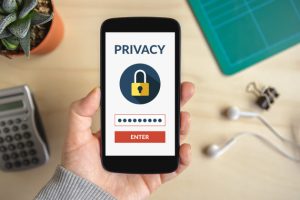This post (and its image) is an excerpt from an article originally posted by Henry Chang (HuffPost) on January 9th, 2018. To read the full article, click here.
“On Jan. 4, 2018, United States Customs and Border Protection (USCBP) issued an updated policy directive on border searches of electronic devices…it has long been believed by privacy advocates that USCBP’s authority to search a traveller’s electronic devices should not be exercised in the same manner as a briefcase or suitcase. This is because hand-carried electronic devices now have the capacity to store a very large amount of personal or business information…
Passcode-protected or encrypted information
 The new directive states that a USCBP officer may request the traveller’s assistance in presenting electronic devices, and information contained therein, in a condition that allows inspection of the device and its contents. If the USCBP officer is unable to complete an inspection of an electronic device because it is protected by a passcode or encryption, they may seize the device…
The new directive states that a USCBP officer may request the traveller’s assistance in presenting electronic devices, and information contained therein, in a condition that allows inspection of the device and its contents. If the USCBP officer is unable to complete an inspection of an electronic device because it is protected by a passcode or encryption, they may seize the device…
Of course, the new directive does not actually state that travellers have a positive obligation to provide a passcode or other means of access to USCBP during a border search. This is because the law in this area is still unclear.
…the USCBP does not currently have the legal authority to compel travelers to assist them in unlocking an electronic device at the border. Nevertheless, the new directive makes clear that USCBP officers will continue to ask for passcodes and other means of access in order to inspect electronic devices. It also makes clear that, if the traveler does not comply, USCBP may detain the electronic device for further examination.
The new directive also does not address the issue of how long USCBP may delay the entry of a traveler in connection with the search of their electronic devices…
Restrictions on USCBP access to information in the Cloud
Fortunately, the new directive formally clarifies that a border search should include an examination of only the information on the device itself and accessible through the device’s operating systems or through other software, tools or applications. In other words, officers may not use the device to access information stored solely in the “cloud…” ”
To continue reading this article, click here.

